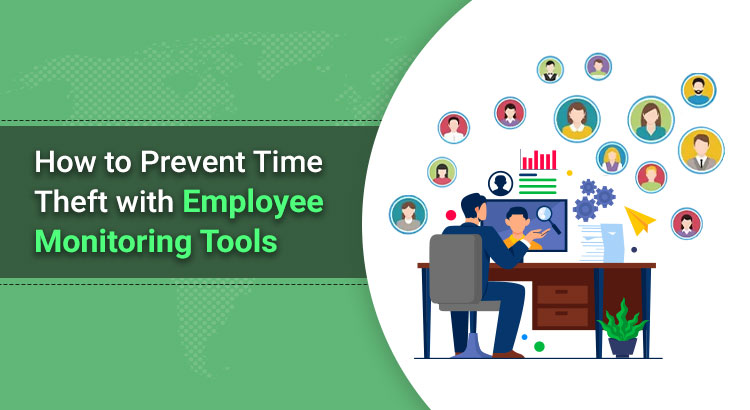Time Management Showdown: Time Tracking Apps vs. Traditional Timesheets
- December 22, 2024
Have you ever felt like something’s secretly taking your time during work? You might think its inefficiency hiding somewhere. Don’t worry, hardworking friends! This blog is your secret tool. We’re going to look closely at time tracking apps versus old-school timesheets. We’ll check out what’s good and bad about both, so you can pick the one that fits you best. Prepare to spot what’s eating up your time, sharpen your concentration, and beat the time thief once and for all!
The Traditional Timesheet: Tried and True
Timesheets have held the fort for decades, a reliable, paper-based (or sometimes spreadsheet) system for recording work hours. They offer a sense of structure and accountability, allowing you to track time spent on specific projects and tasks.
Pros of Timesheets:
- Simple and Familiar: Everyone understands how a timesheet works. No need for a learning curve.
- Offline Accessibility: No internet connection required! Perfect for situations with spotty Wi-Fi.
- Cost-Effective: Free
Cons of Timesheets:
- Time-Consuming: Manually filling out timesheets can be tedious, eating into your precious productivity time.
- Prone to Errors: Accidental omissions or inaccurate estimates are common.
- Limited Insights: Timesheets offer basic data, not insightful reports on how you spend your time.
- Inflexible: Adapting timesheets for complex projects or remote work can be cumbersome.
Enter the Time Tracking App: A Digital Disruption
Time tracking apps have emerged as a powerful challenger, leveraging technology to streamline the process. These apps offer a variety of features to make managing your time a breeze.
Pros of Time Tracking Apps:
- Automation is Your Friend: Many apps automatically track your time in the background, eliminating manual entries.
- Detailed Insights: Get reports that break down your time by project, task, and even client, revealing hidden patterns and inefficiencies.
- Improved Project Management: Integrate time tracking with project management tools for better resource allocation and deadline management.
- Remote-Friendly: Perfect for distributed teams, allowing everyone to track their time seamlessly from anywhere.
- Flexibility: Create custom categories, track time in different ways (e.g., timers, stopwatch), and adapt to your specific workflow.
- Integration Power: Connect your time tracking app with other tools you use daily for a unified workflow.
Cons of Time Tracking Apps:
- Learning Curve: There’s a slight learning curve involved in getting familiar with the app’s interface.
- Cost: While many offers free tiers, some apps require paid subscriptions for advanced features.
- Reliance on Technology: App functionality depends on a stable internet connection.
The truth is there’s no one-size-fits-all answer. The best choice depends on your specific needs and preferences.
Here’s a quick decision-making matrix to help you choose your champion:
| Feature | Time Tracking Apps | Timesheets |
| Ease of Use | Moderate learning curve | Simple and familiar |
| Cost | Free tiers available, paid plans for advanced features | Free |
| Automation | Automatic time tracking available | Manual entry |
| Insights | Detailed reports and analytics | Limited data |
| Flexibility | Highly customizable | Less flexible |
| Remote Work | Ideal for remote teams | Can be cumbersome |
| Offline Use | Limited functionality offline | Works offline |
Time Tracking Apps: The Undisputed Champion
For the modern IT professional, entrepreneur, or SAAS specialist, time tracking apps offer a compelling advantage. Automation, detailed insights, and improved project management make them a powerful weapon in your productivity arsenal. They can help you:
Identify Time Wasters: See where your time goes, helping you eliminate time-sucking activities.
Improve Billing Accuracy: Ensure accurate client billing by tracking time spent on specific projects.
Boost Focus and Productivity: Knowing your time usage patterns can help you prioritize tasks and work more efficiently.
Become a Data-Driven Decision Maker: Use time tracking data to make informed decisions about resource allocation and project planning.
Think of time tracking apps as your personal productivity coach, whispering valuable insights in your ear. They can reveal hidden inefficiencies, empower you to make data-driven decisions, and ultimately, free you to focus on what matters most – doing the high-impact work that propels you and your team forward.
Remember, the key to success is finding the right tool for the job. Experiment with different apps, explore their features, and discover the champion that best complements your workflow. With a time tracking app by your side, you’ll be well on your way to conquering deadlines, crushing projects, and thriving in the modern workplace.
More resources
Beyond The Big Brother Myth: Unveiling The Unexpected Benefits Of Employee Monitoring
How Workforce Planning Software Optimizes Your Talent Pipeline

How to Prevent Time Theft with Employee Monitoring Tools



